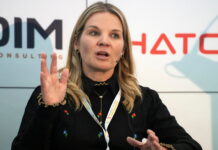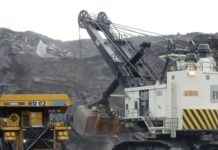
KABANGA Nickel is to accelerate its project in Tanzania after receiving a special mining licence from the East African country – its first in ten years.
The granting of the SML follows the signing of the framework agreement in January and is valid for the full life of the project which is currently put at in excess of 30 years, the company said on Wednesday. The SML grants Kabanga Nickel’s local partnership vehicle, Tembo Nickel, the full mineral rights that will unlock the substantial economic potential of the Kabanga Nickel Project, it said.
Based on the in-situ mineral reserve estimate to date, the Kabanga Nickel Project has 58 million tons at 2.62% nickel containing more than 1.52 million tons or 3.3 billion pounds of nickel. Glencore and Barrick spent $290m exploring the prospect during the 10 years of their ownership to 2014.
“Kabanga will be critical to accelerating the supply of much needed battery metals, essential for the global transition to a low carbon economy,” said Chris Showalter, Kabanga Nickel CEO in a statement. “Kabanga will be critical to accelerating the supply of much needed battery metals, essential for the global transition to a low carbon economy.”
Demand for EV batteries will drive new demand for nickel, with the total global nickel supply forecast to more than double – from an estimated 2.25 million tons in 2020 to five million tons by 2040, said Kabanga Nickel citing industry analysts at Roskill
In addition to nickel, Kabanga also contains cobalt and copper as co-products. Based on resource estimates, the cobalt grade is “comparatively high” at 0.20% cobalt and contained metal of over 100,000 tons described as “responsibly sourced, non-conflict cobalt”, according to a company statement earlier this year.
One of the personalities behind Kabanga Nickel is its executive director, Keith Liddell, a veteran of the South African mining sector. “As the world forges ahead with plans to decarbonise, it is increasingly looking towards more sustainable means to satisfy today’s growing demand for greener inputs to manufacture electric vehicles …” he previously said.
Liddell has long worked on the development ‘Kell’ technology which he attempted to have adopted in Zimbabwe for use in new platinum group metal refineries.










